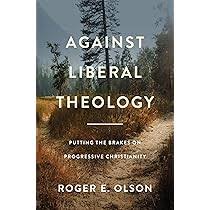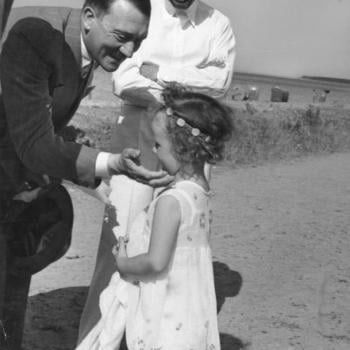Liberal Theology and Salvation
Here I continue my series about my book Against Liberal Theology: Putting the Brakes on Progressive Christianity with Chapter 6: Liberal Theology and Salvation. If you have read the chapter, feel free to comment. If not, feel free to ask a question.
Again, in this chapter, I say that the problem with liberal theology is not so much what it affirms as what it denies. In the case of salvation, it (usually) denies any idea of universal sin and need of supernatural grace. It affirms persons’ need of spiritual growth and liberation from oppression.
Now, I need to make some qualifications. Most liberal theologians affirmed and affirm humans’ innate selfishness and need to develop beyond it into a more socially conscious, other-centered, cooperative lifestyle. And they affirm the model of Jesus Christ for the right kind of living.
What they deny is that sin and salvation require a supernatural cure or divine forgiveness. Or a sacrificial death, an atoning death, or repentance. In liberal theology, also, hell disappears or is reduced to lack of God-consciousness in this life.
Here is my summary from page 144: “Beginning with Schleiermacher, the focus of liberal Christianity’s attention is the potentially good human being. In this view, everyone needs to surpass nature with spirit into full spiritual actualization by turning over a new leaf with God’s help. A human-centered religion has then replaced real Christianity, Christianity as it has ever been before, New Testament Christianity, Christianity of the church fathers and mothers, Christianity of the Reformers, Christianity of the evangelical, Catholic, and Orthodox faiths, Christianity focused on God’s gracious intervention to save the lost, to give hope to the hopeless, to forgive.”
Liberal theology is Pelagian, denying any need of supernatural grace for salvation and redefining “salvation” as being a good person, “loving God and loving what God loves” (Marcus Borg). Grace is something embedded in nature, especially in human nature, in every person, as a call to better living, living for others more than for self.
Most, if not all liberal theologians would agree with liberal theologian Peter Hodgson that salvation is “liberated freedom…An enhancement of life and diversity, a harmonious dwelling together of the whole cosmos, a struggle to heal tragic conflicts, a growth in love and freedom, enlightenment and wisdom, goodness and beauty.” (139) Missing is any need for divine forgiveness, reconciliation with God, supernatural change (of heart, of disposition, of affections) and union with Christ through the power of the Holy Spirit. Salvation is basically the person’s (and the world’s) voluntary “socializing of the soul” (Rauschenbusch) with the goal of social transformation toward the social kingdom of God, kingdom of liberation from oppression.
H. Richard Niebuhr critiqued liberal theology as “A God without wrath brought men without sin into a kingdom without judgment through the ministrations of a Christ without a cross.”
Liberal theology reduces salvation to spiritual formation and ethical living. The only need of Jesus Christ is as a model, an example, of perfect humanity.
Liberal theologians generally (with a few exceptions) deny hell; they almost all (I’m tempted to say “all”) affirm universal salvation already; grace is universally saving. Grace is simply God’s acceptance of everyone. In Tillich’s language the gospel is “Accept that you are accepted.” (Tillich went on to say even though there is no one to accept you!)
Crucial to liberal theology is “symbolic realism,” the idea that religion is about symbols, not history or miracles or supernatural revelation. (138) According to liberal theologian Donald Miller, and I believe all liberal theologians would agree, “Certain religious symbols transform people in positive ways; that’s what religion is all about. Salvation is the experience of being transformed positively by experiences of ‘the Reality’ (God) through symbols, ‘the forms’ of religion (including Christianity).” (Quoting myself, 138) Lest anyone think the transforming symbols are revealed, Miller says they arise “from below, from experiences people have with “the Reality (God).” Miller admitted they may be “revealed,” but I do not know what sense that makes in light of what else he says.
My call is for real liberal theologians and those who agree with them to just admit that their religion is not really Christianity in any meaningful sense; it is a relatively new religion spawned by Unitarianism and Schleiermacher. It is at least as difference from real Christianity as is Mormonism or Christian Science. These are, of course, my opinions and all I can do is put them out there for others to consider and either agree or disagree. But, unlike many other critics of liberal theology, I have, in this book, provided numerous quotations from liberal theologians to justify my opinion as more than just polemic.
*Note: If you choose to comment, make sure your comment is relatively brief (no more than 100 words), strictly on topic, addressed to me, civil and respectful (not hostile or argumentative), and devoid of pictures or links.*


















